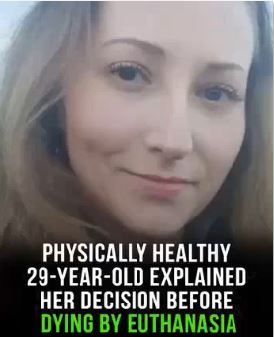
When a 28-year-old woman from the Netherlands shared her decision to seek legally assisted death despite being physically healthy, her story sparked an intense international discussion. Living quietly near the German border with her partner and two cats, she explained that years of severe depression and complex mental-health struggles had left her feeling unable to continue. Her case has raised difficult questions about where the boundaries of compassion, medical care, and personal choice should be — particularly when suffering is psychological rather than physical.
In the Netherlands, euthanasia and assisted dying are legal under specific, carefully regulated conditions. Requests must be voluntary, patients must be enduring unbearable suffering with no reasonable prospect of improvement, and physicians are required to follow strict procedures, including independent assessments and post-review evaluations. While these laws were initially designed for individuals with terminal illnesses, they can, in rare cases, apply to people facing severe, treatment-resistant mental-health conditions — circumstances that describe her request.
The young woman stated that after years of unsuccessful treatments, her psychiatrist determined her condition was unlikely to improve. She described her wish for a peaceful farewell at home, surrounded by loved ones and under medical supervision. For her, the decision represents a desire for relief from long-term suffering. Yet, her story has drawn strong reactions from mental-health advocates and the public alike, many of whom emphasize that emotional healing can take unexpected turns and that continued care, new therapies, and time can still bring change and hope.
Critics of expanding assisted-dying laws warn that allowing such cases could risk normalizing death as a solution to emotional distress, particularly for younger people. Some ethicists have expressed concern about the growing number of psychiatric-related requests, fearing that society may too easily accept irreversible choices made in moments of vulnerability. Supporters, however, argue that autonomy and dignity are central to compassionate care, and that individuals experiencing persistent, unbearable suffering deserve the right to make deeply personal decisions. As the debate continues, one thing is certain — this case has reignited global reflection on how to balance empathy, safety, and hope when confronting the most complex forms of human pain.